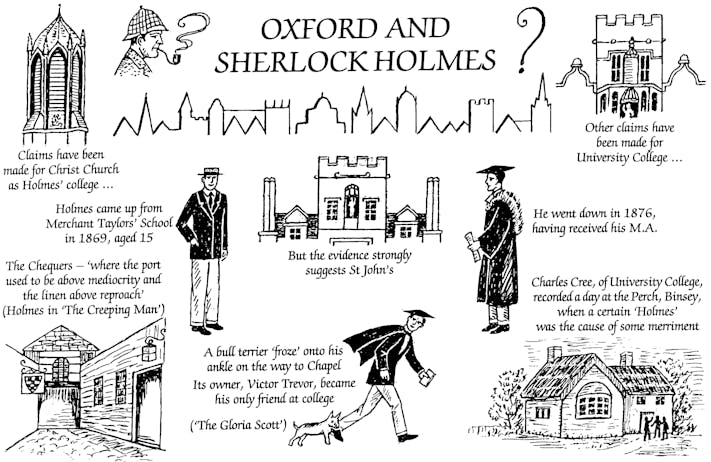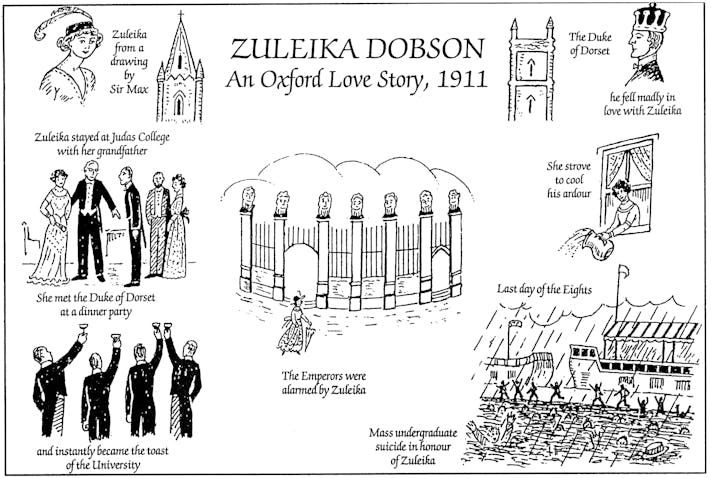Oxford and Sherlock Holmes

Although it is by no means certain that Sherlock Holmes attended Oxford University, his reference to Cambridge as “this inhospitable town” in The Missing Three Quarter seems to weigh the balance heavily in Oxford’s favour.
As far as college is concerned, the evidence is even less conclusive. A Mr E G A Holmes came up to St John’s in 1869, from Merchant Taylor’s School, to read Literae Humaniores. Presumably he pursued his interest in chemistry during the vacations; indeed, in The Gloria Scott Holmes mentions performing experiments in the long vacation.
However, also in The Gloria Scott is an episode at college involving a bull terrier. Dogs were not allowed in the grounds of any college except University College, suggesting that it may have been here that the sleuth spent his student days.
Zuleika Dobson

Sir Max Beerbohm (1872-1956) was one of the most renowned authors, caricaturists and parodists of his day. Zuleika Dobson, his first full-length novel, was received with great enthusiasm, and remains one of the most enduringly popular of all Oxford stories: not only for its keen satire and memorable one liners, but also for its charmingly lyrical evocation of Edwardian Undergraduate life. The novelist E. M. Forster described it as “a great work – the most consistent achievement of fantasy of our time... so funny and charming, so iridescent yet so profound.”
Originally published in 1911, the story concerns the visit to Oxford of Zuleika Dobson, a femme fatale of such astounding beauty that the stone heads surrounding the Sheldonian break into a sweat as she passes. It is Eights week, and the heroine is come to stay with her Grandfather, the warden of the privileged, all-male domain of Judas College. Unsurprisingly, the tweed and flannel clad undergraduates all fall hopelessly in love with her, including the rich and gifted Duke of Dorset.
But Zuleika, a conjuror by trade, is only able to love a man who shows himself to be impervious to her charms. This restriction proves fatal: one by one her suitors, made desperate by rejection, commit suicide, until finally, on the final day of the bumping races, a vast crowd of undergraduates hurl themselves into the Isis, crying her name as they sink beneath the water. Their sacrifice does affect our heroine, but not perhaps as one might expect. That very evening she asks her maid to consult Bradshaw (the railway timetable). “See if it is possible to go direct from here to Cambridge,” she says.



